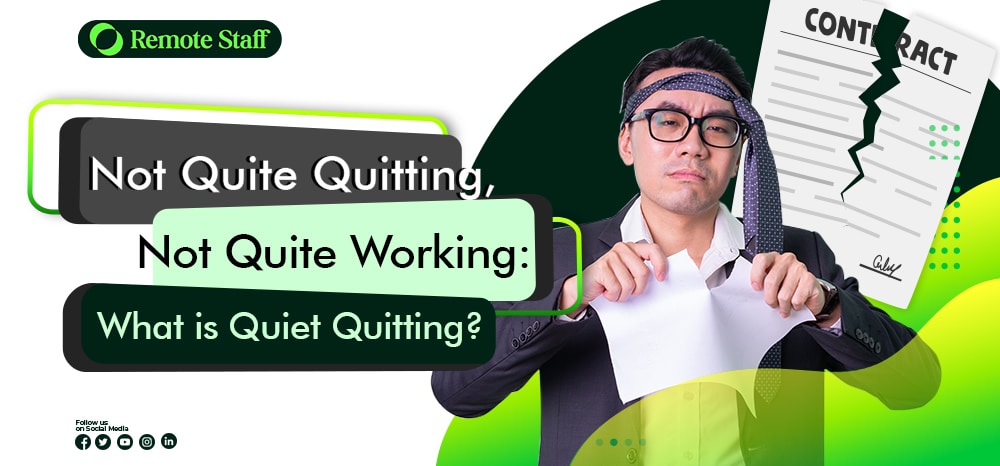A term that has recently been gaining plenty of attention lately in the business world is Quiet Quitting. This term has sparked discussions amongst netizens and experts about how employees should act in the face of stress and burnout.
One side claims there’s nothing wrong with just doing the part of your job as mentioned in the job description. The other says that Quiet Quitting promotes unproductive behavior within the workplace.
Curious to know more about Quiet Quitting, its meaning, origins, and effect on the business world? Then continue reading on.

What is It?
In simple terms, Quiet Quitting means not outright quitting your job, but just doing the bare minimum to accomplish your tasks. It’s the opposite of the typical mindset of doing above and beyond what’s in your job description so you can quickly climb the career ladder.
The origins of Quiet Quitting’s sudden surge of popularity can be traced back to a Tiktok post by user @zaidlepellin. The post then became viral and currently has 3.5 million views.
However, just because this is a new term doesn’t mean the idea behind it is recent. This has been a thing for decades under different terms. There are plenty of reasons employees remain in jobs they don’t like, such as the simple fact that finding a new one would be difficult.

Why Quiet Quitting is Becoming Popular?
Quiet Quitting has been the default practice for some employees after being burned out with overdemanding work that pays little, especially during the pandemic. After all, why should they put more effort into something when doing the bare minimum gets their tasks done?
Instead of quitting their jobs, they dial down their efforts and focus more on themselves and their loved ones. It doesn’t mean they’re being unproductive anymore, as they’re still accomplishing their tasks. By doing this, they can achieve a better work-life balance and avoid burnout.
Another reason Quiet Quitting became popular lately is because it’s a response to the growing rift between employees and their bosses. No longer will employees tolerate working more hours for no extra pay and exacting demands from their bosses while working remotely.

Criticisms to Quiet Quitting.
While many employees approve of Quiet Quitting, employers and some employees don’t view it in a positive light. They see it as being lazy and counterproductive in improving one’s career. Some employees worry that this means they have to pick up the slack of their co-workers now.
Besides these, employers and career advisors find this mindset quite ridiculous. Nobody’s forcing their employees to do anything other than their job, so why need this? Some have even commented how sad it is to hinder yourself from finding the job for you by doing this.
In addition, they also believe Quiet Quitting to be a passive-aggressive act against the company. If you’re feeling burnt out, you should say so instead of doing something like this.

Quiet Quitting: a New Work Ethic or an Unnecessary Idea?
The idea behind Quiet Quitting may not be new, but it has caused a stir in the business world today. Many have shown support for this mindset, as it helps them maintain their work-life balance and improve their health while remote working.
However, employers and some employees remain unconvinced with Quiet Quitting. They have concerns that this mindset would lead to decreased productivity and employee morale. They also find the idea redundant and promote unnecessary passive aggressiveness to employees.
So what do you think? Is this something you’ve been practicing, or want to practice, lately? Or is it something you find unnecessary or even problematic?

